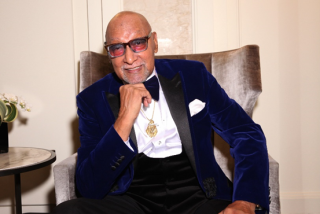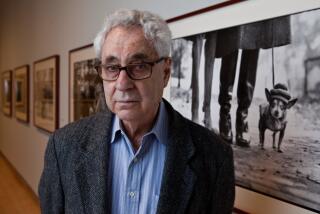At 100, the Duke Lives
- Share via
Edward Kennedy Ellington, the “Duke” of America’s jazz and swing eras and arguably our most influential composer, was born in Washington, D.C., 100 years ago today, and his music promises to keep feet tapping into the new millennium.
Pianist, arranger, composer and conductor, Duke Ellington wrote or co-wrote more than 1,500 compositions, among them such classics as “Solitude,” “Mood Indigo” and “Satin Doll.” His music is as vibrant today as it was six decades ago when he was producing musical reviews at Harlem’s Cotton Club.
If jazz is indeed America’s paramount contribution to music, Ellington was its No. 1 interpreter. He was able to assemble jazz virtuosos and turn them into a single, sensational instrument. The orchestra was his, and he was demanding, but he also offered the spotlight to many jazzmen over the years. Who else but the Duke would have adopted as his orchestra’s signature number a composition written by someone else, “Take the A Train,” by a band member and key collaborator, Billy Strayhorn?
The Spanish philosopher Juan David Garcia Bacca wrote that the music of composers like Johann Strauss is meant for dancing, while composers like Maurice Ravel make musical ideas themselves dance. Ellington’s music does both at the same time.
Ellington died in 1974, and those who never had the opportunity to hear his orchestra can still thrill to the rhythms through recordings of numbers like his “Black, Brown and Beige” as played at a peerless Carnegie Hall concert in 1943.
On this centennial of his birth, the Duke’s music remains as sophisticated and elegant as his name implies.
More to Read
The biggest entertainment stories
Get our big stories about Hollywood, film, television, music, arts, culture and more right in your inbox as soon as they publish.
You may occasionally receive promotional content from the Los Angeles Times.










